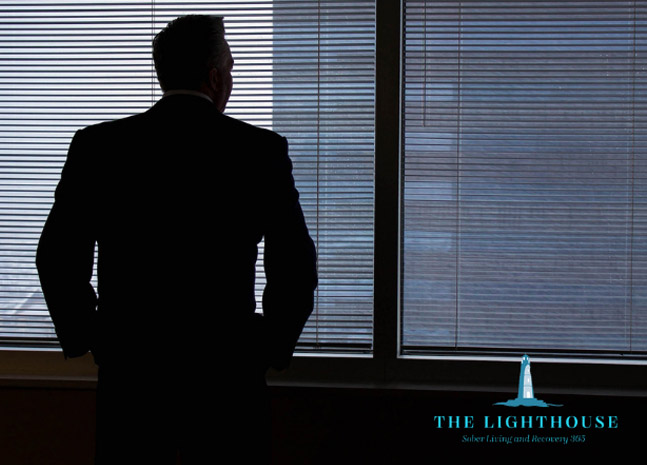How Executives Keep Addiction Recovery On Track During Stressful Situations
For many executives, high stress and responsibility are coupled with a lavish lifestyle of travel and parties and open bars. In this setting, it can be that much more difficult to accept the truth of addiction, get help, and operate in this professional lifestyle without backsliding. It is critical to be able to recognize triggering situations, such as stress, failure, success, and the omnipresence of substances. Support can come in the form of peers, who understand the triggers and help to develop coping strategies, as well as sober companions and residential treatment facilities that respect executives’ needs for privacy and comprehensive care.
“It’s pretty much a non-stop open bar.” That’s how Bryan described his life as a Senior Content Director at a large inbound marketing firm. Between lavish, seemingly monthly conferences, expensive (and expense!) dinners and drinks with clients, office parties, first-class flights, and all the accouterments of an executive lifestyle, Bryan was surrounded with endless and essentially free alcohol. Saying it was a “non-stop open bar” was a line he used to brag to his friends about it, and they’d laugh and congratulate him.
But behind the braggadocio was a cry for help: between the stressful job and the long hours, Bryan had been turning more and more to alcohol to get him through. Now, he started drinking every morning. He was high functioning and still managed to do his job, and so he told himself he wasn’t an alcoholic. But he was, and finally, after overcoming the difficulties of admitting it to himself and the fear of stigma, he entered a high-end rehab clinic. After 30 days of inpatient rehab, he felt he was ready to conquer his demons and get back to work.
His fear, though, was that problematic lifestyle: waiting for him was the endless open bar, its doors swinging wide open, embracing him before pushing him through to the dizzy lights, the music, and the chance to drink as much as he wanted. He was excited to start working again but scared of what it meant.
This lifestyle is a problem for many executives who have started—or who want to start—residential treatment for addiction but know that they may fall back into the same patterns. They need to know that they will be able to keep their recovery on track during stressful situations so that they can continue to live the high-powered lifestyle that drives them, but without falling back into the sinkhole of addiction. With the right training, the right therapy, and with a conscious eye on trigger events, they can have both: freedom from substance abuse and the job they love.
Recognizing the Triggers Executives Face
The first step for Bryan was to really think through all of his trigger situations. There were so many reasons he would start drinking, and he had to understand them so that he wasn’t caught off guard. His list was similar to those of many other people in professions that carry high amounts of responsibility, pressure, and reward.
-
Stress. It could be the stress of having to make constant decisions, of having to always be mentally prepared for the next challenge. It might be the stress of knowing that a product might fail if you mess up, and a lot of people could be out of a job (including yourself). It might be the self-induced pressure of living up to your own reputation (or self-image). Stress is known as one of the leading causes of substance abuse, and there is even evidence that large amounts of stress cause changes in the brain that can help foment addiction (the process of PTSD is similar in this way). For Bryan, the stress of having to create new campaigns that were cutting edge nearly every day gnawed at him, and the bottle helped him cope.
-
Failure. Everyone messes up at work. The difference is that people who do so from the C-Suite do so publicly and in ways that can damage their reputations and even cost them their jobs. The fear of this and the reality of it when it happens can be a triggering event that leads to substance abuse and co-occurring mental health disorders. Bryan once crafted a marketing campaign that bombed and was mercilessly mocked in social media. Despite his record of success, he couldn’t get over the burning sting of this one failure.
-
Success. Of course, successful campaigns brought with them different problems, including celebration. Clients would send over champagne to say, “thank you.” The gang would go out to the bar to celebrate (granted, they went out to unwind nearly every night anyway, but this time there was an excuse to expense it). Alcohol, for many, is the currency of celebration, so for executives recovering from addiction, every triumph can carry with it the seed of danger.
-
Lifestyle. “From the moment you get in a first-class seat on the plane, someone is offering you a drink. And it doesn’t stop for 5 days.” That’s how Bryan described a recent conference he attended, and it rings familiar to many executives. The lifestyle of meeting with clients and peers, having large events, and performing the essentials of business and politicking almost seem to mandate alcohol. Avoiding those things can literally mean not doing your job.
Of course, for Bryan it was alcohol, but there are many other substances that executives abuse; and stress, worry, and failure contribute heavily to their excesses. The partying, and seeing others let go, also makes it easier to justify using. “Everyone is drinking and cutting loose—so what if I do a few lines or take some pills? I’m just like everyone else.” There are triggers everywhere. The question is: How do you avoid them?
Practice and Companionship to Find Your Strength
While still in rehab, Bryan practiced strategies with his therapists and with his peer groups (all of whom, like himself, were at a high level of professional success). They planned for what he could say and think to himself when facing triggers. When celebrating, he can say things like, “No thanks, I’ve got to finish the next project so we can get some more of this!” They game-planned through conference scenarios so that he would be ready to turn down drinks and still be able to do the networking and glad-handing required.
Practicing these kinds of scenarios, in the company of his peers, made a big difference. In the past—even before he had really fallen into the clutches of alcoholism—it hadn’t even occurred to Bryan that he could say, “no.” Some nice flight attendant was offering him a free drink. The happy hour at the end of the day’s conference was actually 3 hours, and then it bled into a party. Who could say, “no”? But the simple act of doing so, the simple act of simply saying, “no, I’m good,” showed him that it was possible, and it changed the way he looked at the world.
Of course, it isn’t a matter of mere words. Overcoming addiction is one of the hardest things you can do, especially when there are so many triggers. Bryan was going back to the stressful, high-risk, high-reward world that he truly loved but that made him drink. So he needed to make sure that he would have someone to talk to, to help guide him. The residential treatment center he attended helped connect him with a “Sober Companion”: a counselor who would talk to him at all hours, help him get through the daily stickiness of recovery and get past the need for alcohol that kept him from moving forward.
By recognizing the situations in which he wanted to drink, Bryan, like so many executives suffering from the pains and fury of addiction before him, was able to be better prepared and to face them with the mindset of victory, rather than acquiescence. He wasn’t giving in. He was following through with the strength that led him to overcome his fears about rehab. He found a place that understood his needs, allowed him to stay partially connected with work during treatment, valued his privacy above all, and placed him with a group of his peers, men, and women who understood the heights of success but also the lows of failure.
The lifestyle of his industry didn’t change. The stresses didn’t change. But Bryan was different. He controlled how he interacted with his career and not the other way around. With knowledge, with planning, and with practice, any executive struggling with addiction can do the same.
Want more happiness and fulfillment in life?
Commit to your recovery.
Call Trey Laird 203-400-8065



